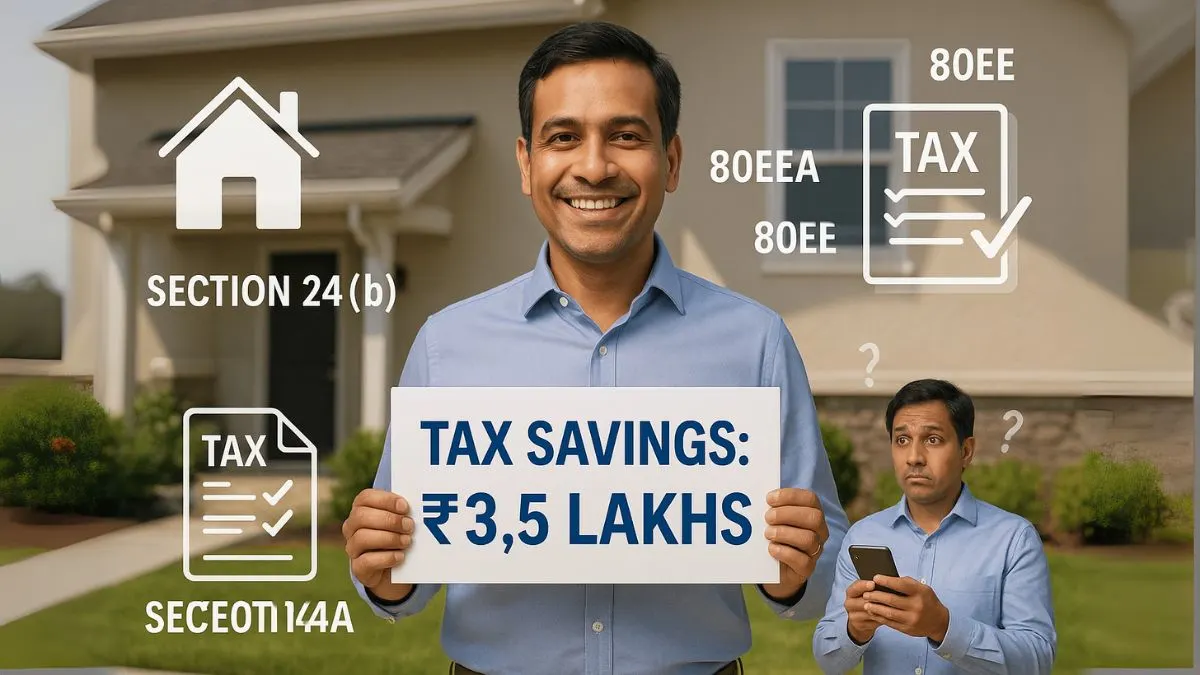
Buying a home is a dream come true for many individuals, but managing the cost of home loans can often be challenging. The good news is that the Income Tax Act of India offers various provisions to help taxpayers save money on home loan interest. Knowing the right home loan interest income tax section can help you maximize your tax savings while repaying your home loan.
In this blog, we will walk you through the important sections such as Section 24, Section 80EE, & Section 80EEA of the Income Tax Act that allow you to claim deductions on home loan interest & principal repayments. We’ll also clarify common doubts like which section to use, how much you can claim, & how to reflect it in your ITR.
Which Section of Income Tax Covers Home Loan Interest?
The home loan interest deduction in income tax primarily falls under the following sections:
- Section 24(b) of Income Tax Act
- Section 80EE
- Section 80EEA
Section 24(b) of Income Tax Act
Under Section 24(b), taxpayers can claim a deduction of up to ₹2 lakh per annum on the interest paid on a home loan for a self-occupied property. If the house is rented, the entire interest amount is eligible for deduction.
Here are key points:
- The loan must be taken for the purchase, construction, repair, or reconstruction of a property.
- The maximum cap of ₹2 lakh applies only to self-occupied homes.
- If the property is under construction, the deduction begins in the year the building is completed.
Section 80EE of the Income Tax Act
If you are a first-time homebuyer, you can get an additional tax benefit under Section 80EE. This section allows you to claim a deduction of up to ₹50,000 annually on home loan interest.
Eligibility for Section 80EE:
- The loan must be sanctioned between April 1, 2016, & March 31, 2017.
- The value of the property should not exceed ₹50 lakh.
- The home loan should not exceed ₹35 lakh.
- You must not own any other residential house on the date of sanction.
Section 80EEA of the Income Tax Act
To further extend the benefit of affordable housing, Section 80EEA was introduced. It offers an additional deduction of up to ₹1.5 lakh per annum on home loan interest over & above the deduction under Section 24(b).
Key Features of Section 80EEA:
- Applicable for loans sanctioned from April 1, 2019, to March 31, 2022.
- The stamp duty value of the house should not exceed ₹45 lakh.
- This section is over & above the ₹2 lakh deduction under Section 24(b), which means you can effectively claim up to ₹3.5 lakh in interest deduction."
Home Loan Principal Repayment: Section 80C
While most people focus on home loan interest, it is equally important to know that the principal repayment qualifies for deduction under Section 80C of the Income Tax Act. You can claim up to ₹1.5 lakh annually on the principal repayment along with other eligible investments like ELSS, PPF, LIC, etc.
How to Claim Home Loan Interest Deduction in ITR?
- If you are filing ITR-1 (Sahaj) or ITR-2, you can enter your home loan interest deduction under the “Income from House Property” section.
- For self-occupied property, negative income will reflect (because interest is an expense).
- If you are claiming Section 80EE or 80EEA, these should be entered under the “Deductions” section."
Example for Better Understanding
Let’s say you have:
- Home loan interest paid: ₹2.8 lakh
- Loan sanctioned in FY 2021-22 for an affordable house (stamp value under ₹45 lakh)
You can claim:
- ₹2 lakh under Section 24(b)
- ₹1.5 lahks under Section 80EEA
Total deduction: ₹3.5 lakh on interest paid.
Final Thoughts
Whether you’re a first-time homebuyer or repaying an ongoing home loan, understanding the right income tax sections is crucial to saving maximum tax. Use Section 24(b), Section 80EE, & Section 80EEA wisely to reduce your tax liability. Don’t forget to correctly reflect these in your ITR-1 or ITR-2 to avoid notices.
👉 Need expert help with ITR filing & claiming your home loan deductions? Visit Callmyca.com to connect with top tax professionals who can help you file accurately & maximize your savings.











